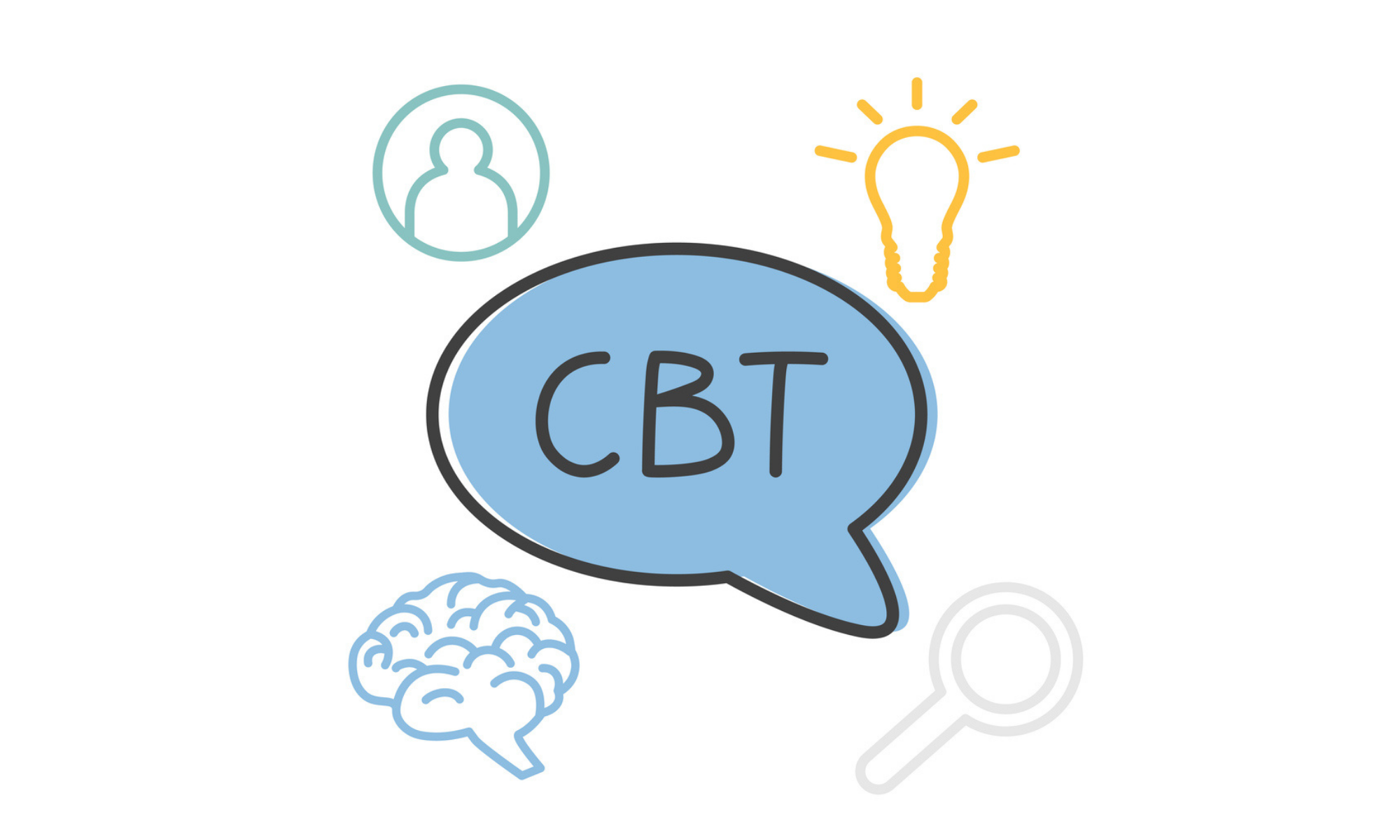What is Cognitive Behavioural Therapy (CBT)?

Cognitive, as in examining the things we think, and behavioural, as in examining the things we do.
CBT is a goal-oriented style of talk therapy that addresses the thoughts, beliefs, and attitudes that influence your feelings and behaviours. CBT has been shown to be an effective psychological treatment for individuals experiencing anxiety, depression, and insomnia (Cuijpers et al., 2025; Hofmann et al., 2012).
How does CBT work?
CBT works by highlighting the connections between a patient’s thoughts, feelings and behaviours. Many patients are unaware of distortions in their thinking and how harmful self-talk can perpetuate mental health concerns. By recognizing this two-way relationship, patients can learn skills to retrain their brain.
The two-way relationship between cognition and behaviour is broken down in the CBT model into three levels of cognition: conscious thoughts (rational thoughts and choices), automatic thoughts (rapid and often irrational), and schemas (core beliefs shaped by early childhood or life experiences). CBT teaches patients to be mindful and practice journaling to identify when their automatic thoughts or schemas are negatively affecting their behaviour or mental health.
An example of an automatic thought might be assuming you are going to be terminated from your job because your boss sent you a calendar invite labeled “quick chat.” The cognition is the automatic thought that you’re going to be fired; the behaviour could be the resulting increase in anxiety or depression symptoms, leading you to call in sick to work.
A common example of a schema is believing that your partner doesn’t love you or wants to end the relationship because, growing up, your parents divorced and had multiple partners throughout your childhood. The negative behaviour that may result from this cognition could include increased mental health symptoms or, more specifically, leaving a partner before they have the chance to leave you.
At Cognito, the role of our CBT Care Providers is to help patients recognize these correlations so that, when triggering incidents occur, leading to increased mental health symptoms, patients can identify them and gradually train their brains to respond more often with conscious thoughts.
References
Cuijpers P, Harrer M, Miguel C, et al. (2025). Cognitive behavior therapy for mental disorders in adults: A unified series of meta-analyses. JAMA Psychiatry. 82(6). pp. 563–571. doi:10.1001/jamapsychiatry.2025.0482
Hofmann SG, Asnaani A, Vonk IJ, Sawyer AT, Fang A. (2012). The efficacy of cognitive behavioral therapy: A review of meta-analyses. Cognitive Therapy And Research. 36(5). pp.427-440. doi: 10.1007/s10608-012-9476-1
Last updated on December 10, 2025









